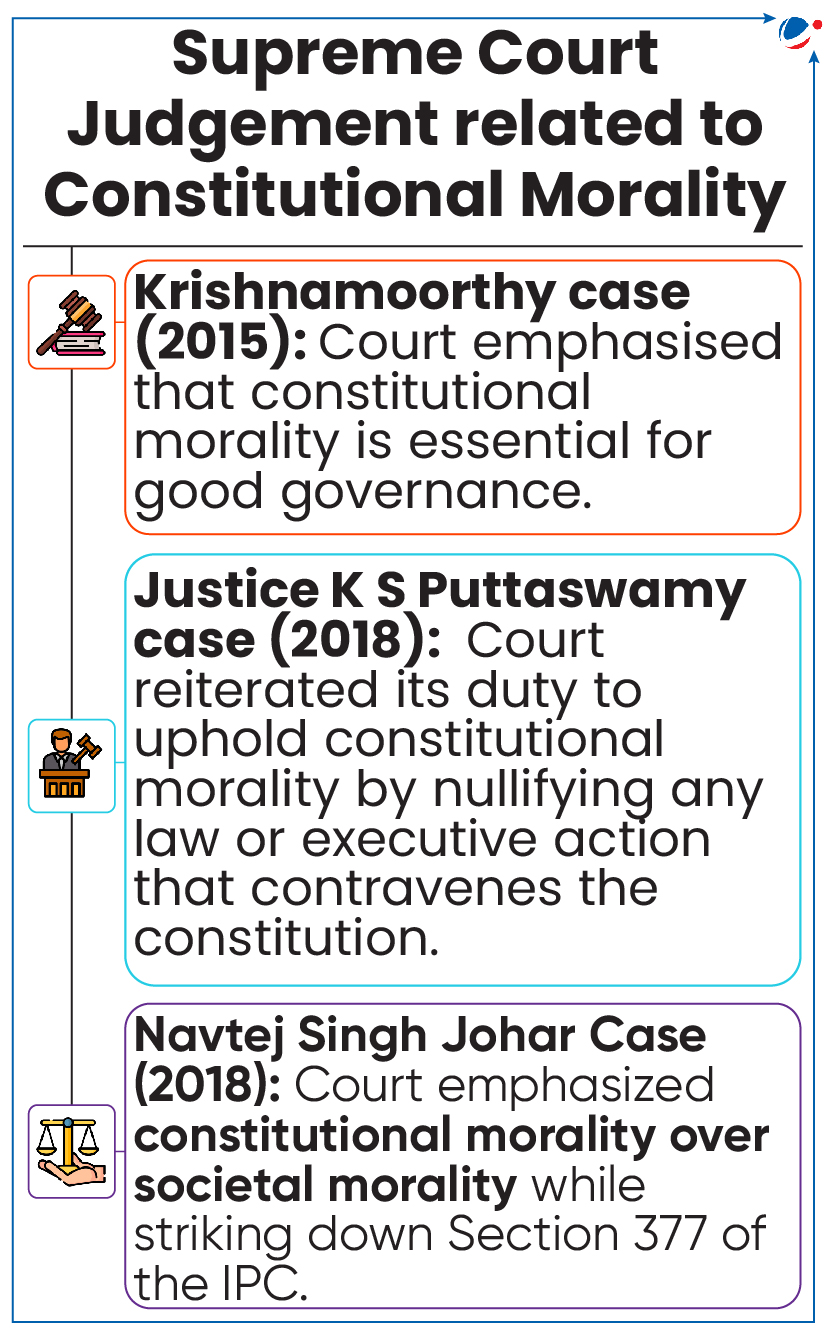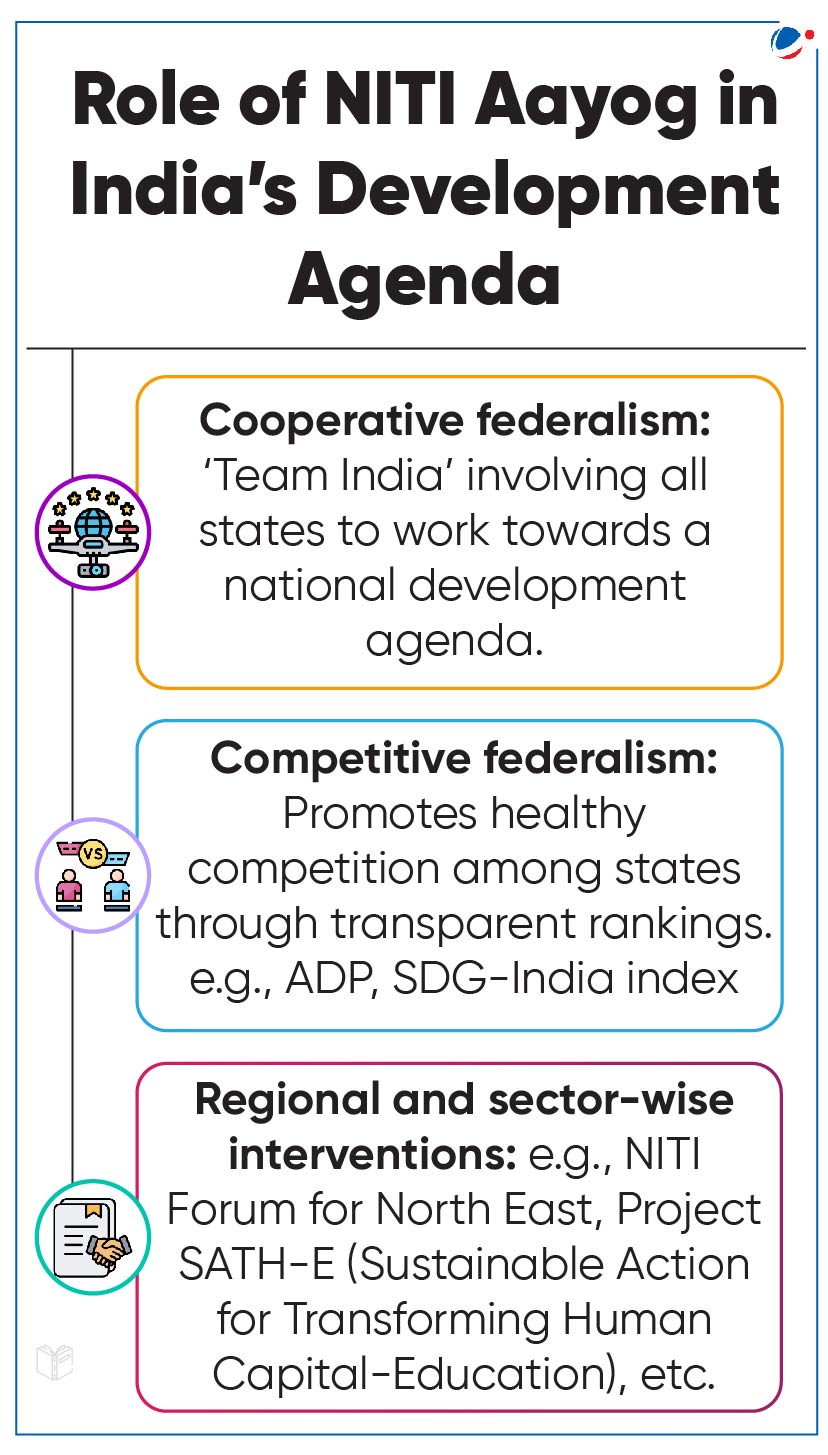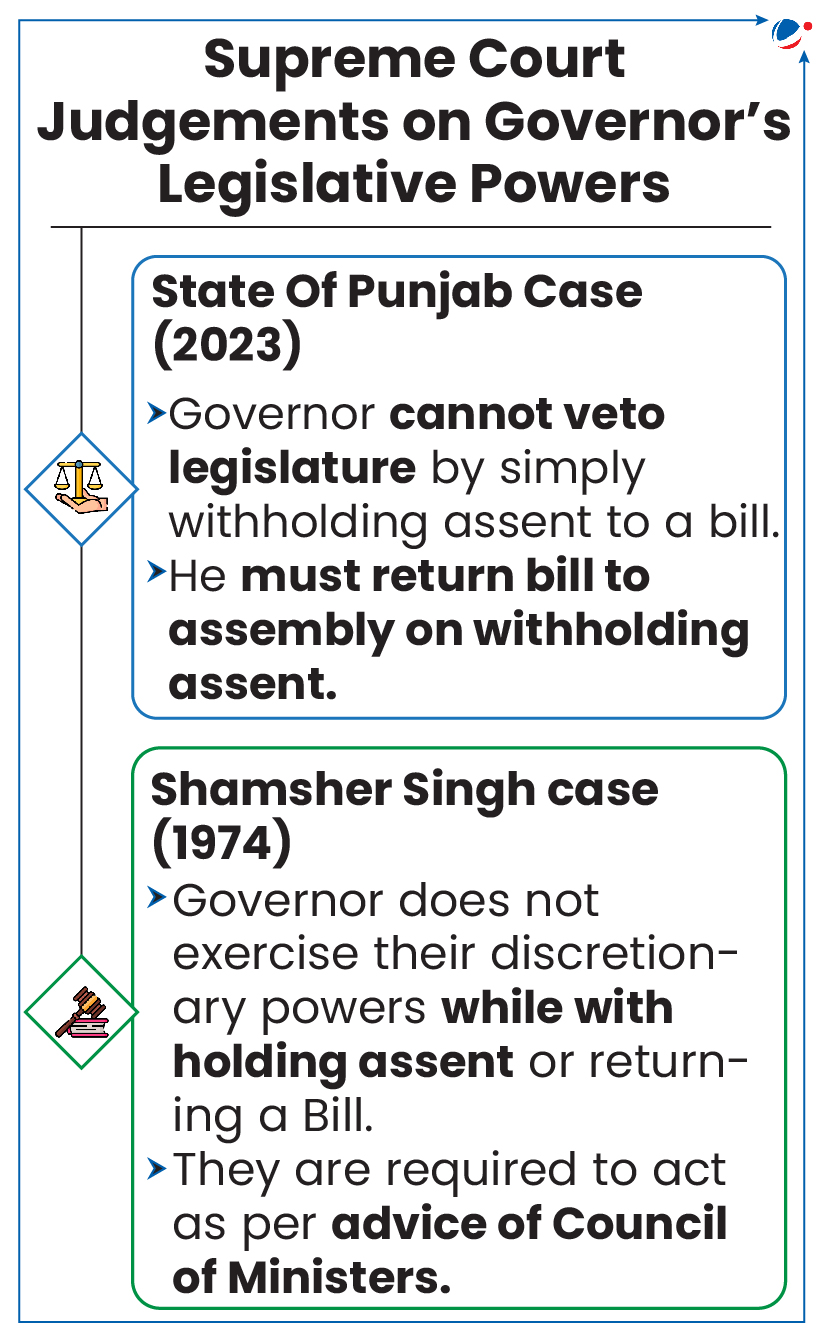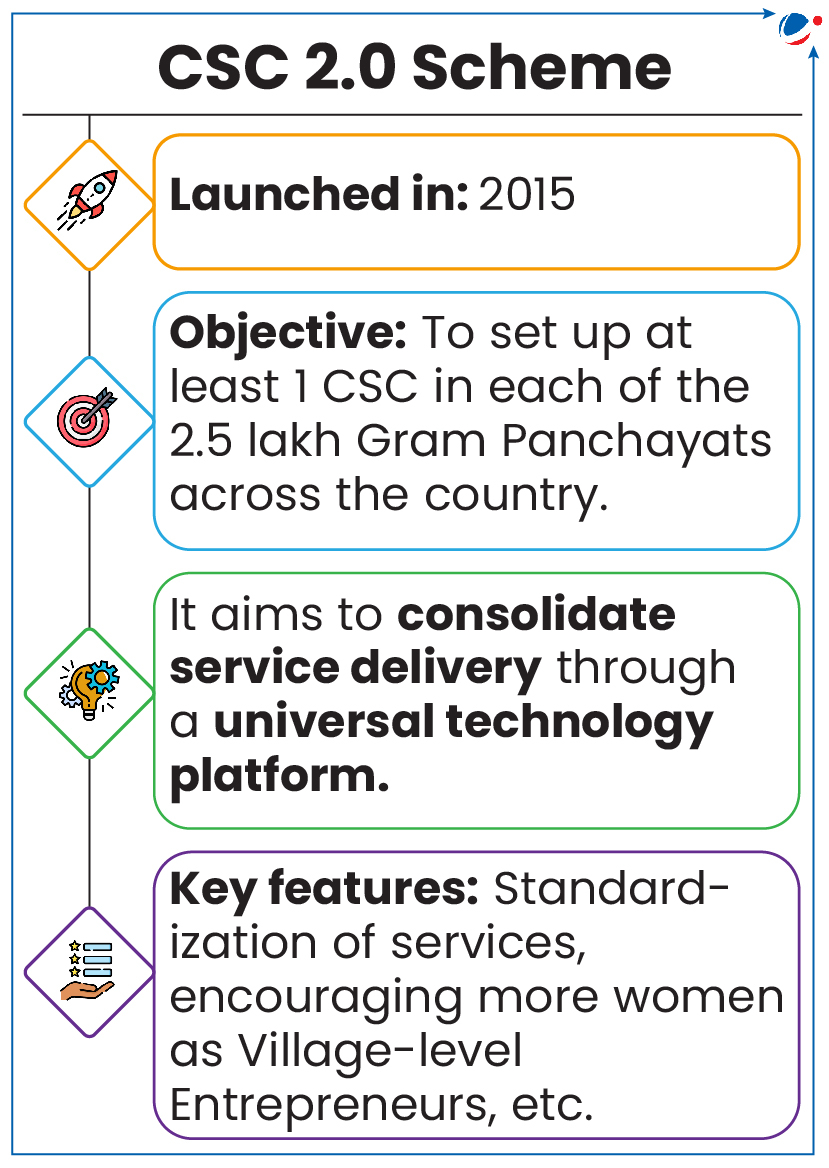The Union government constituted eight Cabinet committees.
About Cabinet committees
- These are constituted under the Transaction of Business Rules,1961.
- The cabinet makes use of the committee system to facilitate decision-making in specific areas.
- These include cabinet committees on:
- Appointments
- Accommodation
- Economic Affairs
- Parliamentary Affairs
- Political Affairs
- Security
- Investment and Growth
- Skill employment and livelihood
- The Political Affairs Committee, Economic Affairs Committee, Appointments Committee are chaired by the Prime Minister and Parliamentary Affairs Committee by the Home Minister.
Recently the CJI said that 'Constitutional Morality' is essential to India's diversity.

- Constitutional morality entails adherence to constitutional norms that enable the practice of the Constitution not only in letters but also in spirit.
- It goes beyond the literal interpretation to encompass a commitment to constitutional values such as sovereignty, social justice, and equality.
- British historian George Grote first coined the term.
- He emphasised the balance between freedom and restraint, where citizens obey constitutional authorities but also have the freedom to criticize them.
- According to the Dr. B.R. Ambedkar:
- Constitutional morality is necessary for the peaceful working of a democratic Constitution. However, it is not a natural sentiment. It has to be cultivated.
- A strong nexus exists between the form of administration and the form of the Constitution.
- Thus, it is possible to undermine the Constitution, without changing its form by merely changing the form of the administration and making it inconsistent with the spirit of the Constitution.
- Therefore, he favoured prescribing forms of administration in the Constitution itself.
Some constitutional provisions related to Constitutional Morality
- Fundamental Rights: Individuals’ rights against the arbitrary use of state power.
- Fundamental Duties: Citizens have responsibilities to the nation.
- Separation of power: Judicial review of legislative and executive actions, legislative oversight of the executive, etc.
Since the term of the Aayog, barring Chief Executive Officer (CEO), is co-terminus with the term of the Union Government, reconstitution was due since the formation of new government in June earlier this year.
About National Institution for Transforming India (NITI) Aayog

- It is a government think-tank formed in 2015 via a resolution of the Union Cabinet, replacing the erstwhile Planning Commission.
- Composition:
- Chairperson: Prime Minister of India
- Governing Council: Prime Minister; CMs of all the States and UTs with legislature; Lt. Governors of other UTs, Ex-Officio Members; Vice Chairperson, NITI Aayog; Full-Time Members, NITI Aayog; and Special Invitees.
- Ex-officio Members include maximum 4 members of Union Council of Ministers nominated by the PM
- Special Invitees include experts, specialists and practitioners with relevant domain knowledge nominated by the PM
- Regional Councils: To address specific issues and contingencies impacting more than one state or a region
- CEO: Appointed by the PM for a fixed tenure, in the rank of Secretary to the Government of India.
- Twin mandate:
- To oversee the adoption and monitoring of the SDGs in the country, and
- Promote competitive and cooperative federalism among States and UTs.
Supreme Court stated that the State Can't Alter the Schedule Caste (SC) List Published Under Article 341.
- The Court struck down Bihar govt resolution to merge Economically Backward Class Community in SC List.
About Article 341
- President can officially designate certain groups as Scheduled Castes for specific States or Union Territories.
- For States, this is done after consulting the Governor. The designation may include entire castes, races, tribes, or subgroups within these categories.
- Parliament may by law include in or exclude from the list of Scheduled Castes.
The Punjab Universities Laws (Amendment) Bill, 2023 was reserved for the President’s assent by Punjab Governor.

- The bill proposed to replace the governor with the chief minister as the chancellor of state universities.
Reservation of State Bills for President’s Consideration
- Article 200 of the Constitution outlines Governor's power regarding bills passed by the state legislature.
- It provides that Governor may reserve such a bill for President’s consideration.
- Enactment of reserved bill then depends upon President’s assent or refusal of assent and Governor has no role in it.
- If President directs the Governor to return the bill to state legislature for reconsideration, state legislature shall reconsider it within 6 months and present it again to President.
- However, it is not obligatory for President to give his assent to reconsidered bill.
Other powers of Governor on State Bills
- Once a bill is passed by the state Legislative Assembly, it is presented to Governor who is vested with four options:
- Grant Assent: Makes the bill a law.
- Withhold Assent: Effectively rejects the bill.
- Return Bill for Reconsideration: If legislative assembly passes the bill again with or without amendment, the Governor shall give his assent.
- Reserve the Bill for the President's Consideration.
Supreme Court’s Constitution Bench said that states have power to levy tax on mineral rights.
- Supreme Court in an 8:1 ruling held that power of state legislatures to tax mining lands is not limited by Parliament’s Mines and Minerals (Development and Regulation) or MMDRA, 1957.
- One dissenting judgment cautioned about adverse consequences of giving mineral taxation rights to states.
Key Observations by Court
- Power to tax mineral rights is enumerated in Entry 50 of List II (State List) and Parliament cannot use its residuary power with respect to that subject matter.
- Parliament can impose limitations on states' mineral taxation via laws, but the MMDRA has no specific provision imposing such limitation.
- Entry 54 of List I (Union list), pertaining to the Union's power over minerals, is regulatory and does not include taxing authority.
- Also, the term "land" in Entry 49 of List II includes mineral-bearing lands, granting states the competence to tax such lands.
- Court overruled its 1989 judgement and held that royalty is not within the nature of a tax and did not come under MMDRA.
About MMDRA 1957
- Regulates the mining sector in India and provides for following types of licences:
- Reconnaissance permit,
- Prospecting licence (for exploring and proving deposits),
- Mining lease (for mineral extraction) and
- Composite licence (both exploration and extraction).
2023 Amendments in MMDRA
|
Supreme Court recently overturned the decision of Assam Foreigners’ Tribunal and declared a resident of the State as Indian citizen.
Foreigners Tribunals
- Establishment: These are quasi-judicial bodies established under the Foreigners (Tribunals) Order, 1964 by the Central Government, according to Section 3 of The Foreigners Act, 1946.
- Authority: Only Foreigners Tribunals have the power to declare a person as a foreigner.
- Thus, being excluded from the National Register of Citizens (NRC) in Assam does not automatically classify a person as a foreigner.
- Power: Powers of a civil court under the Code of Civil Procedure, 1908.
Supreme Court has asserted that the Central Information Commission has powers to constitute benches & frame regulations.
About CIC
- Genesis: Statutory body under Right to Information Act, 2005 to ensure greater access to information to Indian citizens.
- Functions: To receive and inquire into complaints from any citizen regarding RTI act, etc.
- Members: Commission consists of one chief Information commissioner(CIC) and information commissioner(IC) (Not exceeding 10)
- Appointment: CICs And ICs are appointed by President on recommendation of a committee consisting of
- PM (Chairperson of committee)
- Leader of Opposition in Lok Sabha
- Union Cabinet Minister nominated by PM.
- Tenure: CICs and ICs shall hold office for a period of three years.
Centres Special Purpose Vehicle (CSC SPV), which oversees implementation of CSC scheme, celebrated 15 years of its establishment.
About CSC SPV
- Set up by the Ministry of Electronics & IT under the Companies Act, 1956.
- Provides a centralized collaborative framework for delivery of services to citizens through CSCs.
- Vision: To develop CSCs as a reliable and ubiquitous IT-enabled network of citizen service points.

About Common Service Centres (CSCs)
- It is one of the three pillars of the National e-Governance Plan (NeGP) approved in 2006.
- Other two pillars of NeGP include Connectivity and National Data Bank/ State Data Centres.
- CSCs are front-end delivery points for Government, private and social sector services to rural citizens of India, in an integrated manner.
- It is a pan-India network catering to regional, geographic, linguistic, and cultural diversity of the country.
- Services offered by CSCs include G2C (Aadhar Seervices, ITR filing, etc.), B2C (Bharat Bill Pay System, Mobile and DTH recharge, etc.), Financial services (banking, insurance, pension, etc.), among others.
Significance of CSCs
- Digital inclusion: CSCs bridge the digital divide by providing access to online services in remote areas.
- Employment generation: CSCs provide training programs to enhance digital literacy, employability and promotes entrepreneurship.
- Others: Financial inclusion, rural business support, e-Commerce integration, etc.
NITI Aayog launched ‘Sampoornata Abhiyan’ which is a 3-month campaign to achieve saturation of 6 key indicators in Aspirational Districts and 6 key indicators in Aspirational Blocks.
- Districts and blocks are under the Aspirational Districts Programme and Aspirational Blocks Programme respectively.
- Key indicators across aspirational districts include number of Soil Health Cards distributed, percentage of schools with functional electricity at the secondary level, percentage of children fully immunized, etc.
- Key indicators across aspirational blocks include percentage of persons screened for Diabetes and hypertension, Percentage of SHGs that have received a Revolving Fund, etc.
About Aspirational Districts and Aspirational Blocks Programme
Aspirational Districts Programme | Aspirational Blocks Programme |
Launched in 2018 under NITI Aayog. | Launched in 2023 under NITI Aayog. |
Aims to quickly and effectively transform112 districts across the country. | Aims for saturation of essential government services in 500 Blocks (329 Districts) across the country |
Focuses on five themes:
| Focuses on five themes:
|
Progress is measured on 81 indicators of development. | Progress is measured on 40 indicators of development. |





